1st <In front of your face>
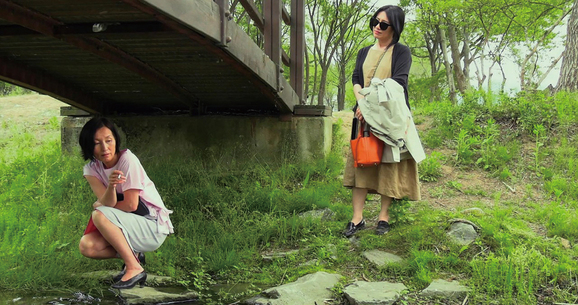
Director Hong Sang-soo put two films in theaters this year, and they were voted first and second respectively. The answer to the question of why Hong Sang-soo again is simple. He wasn't selected because he was Hong Sang-soo. After picking two good movies, I found that they were just directed by Hong Sang-soo. Perhaps one of the reasons is that only Hong Sang-soo is aloof and continues his work in the midst of rapid changes and ups and downs in the film industry. Hong Sang-soo is advancing as if his own path and time exist separately. No, to be exact, we live in the present. He has never made a similar film. Hong Sang-soo's films are always a response to the present moment. It may not be unrelated to this that the silhouette of death began to hang around his films after <On the Beach at Night Alone>. In his most recent work, <In Front of Your Face>, Hong Sang-soo once again proved himself. <In front of your face> is “pleasant and depressing, bizarre and profound” (Lee Ji-hyun). “Hong Sang-soo’s unique directing that makes the small moments of life he encounters live in the film and make them ponder” (Oh Jin-woo) will undoubtedly permeate the audience this time. Thus, <In Front of Your Face> is “a beautiful film that respects the times that an awake person lives and encounters” (Lee Bo-ra) and “a clear and warm film that believes in the power of hugs and prayers even when death comes and lies overflow” (Park Jeong-won) be reborn as Above all, “This film, which consists of only the most basic units that make up a unique film, does not show the distortion of time or the narrow-mindedness of the characters seen in <Direction to Bukchon>. There is not even a camera that grabs people or objects, which is often seen in the director's works. It's amazing that movies are becoming trivial like this, but the echoes are getting more expansive” (Kim Seong-chan). In this way, "Hong Sang-soo's magic directing ability, which draws out meaningful moments whenever there is a character and liver, becomes simpler and deeper as more episodes are added" (Heo Nam-woong). “Praying for one’s salvation by staring only at the face, steps, and gaze are all beautiful.” (Hong Soo-jung)
2nd Place <Introduction>
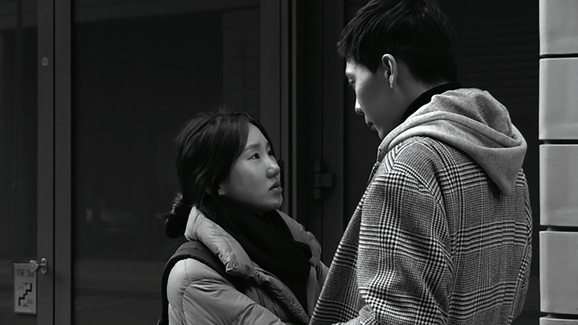
Perhaps the best Hong Sang-soo films are always the latest ones. <Introduction>, which took first place by a narrow margin, is more familiar and neat compared to <In front of your face>. Of course, that doesn't mean it's a repetitive style at all. Rather, <Introduction> is a movie that knocks on doors, full of energy for change. “Unlike the feeling of the beginning given by the title, it is consistently bitter and lonely” (Lee Ji-hyun), which seems to have directly condensed a new start. “Rather than a black-and-white movie, I would rather start in black and get closer to white” (Oh Jin-woo), a certain urge, this film about the shadow of death induces “thinking about things that are barely maintained in a concise manner” (Lee Bo-ra) do. Many critics approached <Introduction> with the keywords 'distance' and 'tactile'. “People create new moments by repeating falling and attaching, and the camera explores the 'distance' between the person and the world” (Sujeong Hong). On the other hand, the spectrum of tactile sensation is also very broad. “The main character, Young-ho, goes into the winter sea, and it gives the impression of being washed away by the strong waves while sitting in the theater audience” (Bae Dong-mi). “Especially in terms of the second half of the 30 minutes, it’s fair to say that this is the best Korean movie I’ve seen this year” (Jang Yeong-yeop). Like “a guidebook that became an educational guide to leaving behind the minimum things that make a film” (Kim So-hee), this work “unquestionably captures the thoughts that come in like waves between hugs and hugs” (Kim Cheol-hong).
3rd place <Mogadishu>
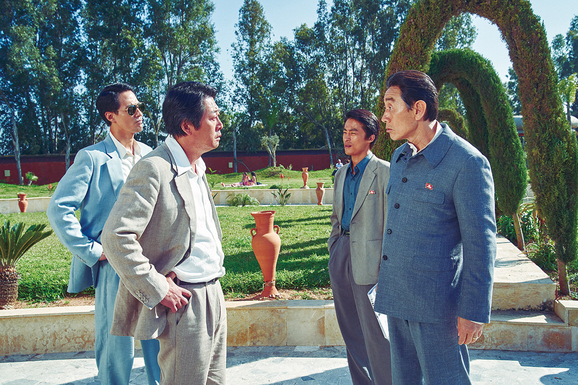
It is the only Korean commercial film that has kept its place this year. With that alone, <Mogadishu> did its job. “This year, when there were very few popular movies to watch, it stands out. This includes support for the resurrected Ryoo Seung-wan” (Lee Yong-chul), “This year’s winner of the genre film. It's as interesting as expected and moderately familiar. <Mogadishu> shows that there is still no failure in Ryu Seung-wan's path” (Lee Ji-hyun), and most of the critics' support also paid attention to the commercial achievements of <Mogadishu>. “Mogadishu, which stands out with its unrivaled action sequences, charm of exotic locations, and clean directing, is a meaningful work that reminds the audience of the charm of Korean blockbuster films, a place where masterpieces have disappeared” (Jang Yeong-yeop).
“It expanded the space of Korean cinema with all locations in Africa, and added a few drops of humanism to not overdo the Korean subject of division, and a sleek popular film that encompasses action, drama, politics and history” (Lee Joo-hyun) struggles alone to attract the audience. Satisfied. “It is a movie that is like a clear answer to how social consciousness can go well with action” (Kim Seong-chan). Above all, <Mogadishu> is mature. Director Ryoo Seung-wan's world, which began to focus on subtraction rather than addition, became more solid, and the "hard work of the staff" (Heo Nam-woong) was added to establish the pride of Korean cinema.
4th <Vacation>
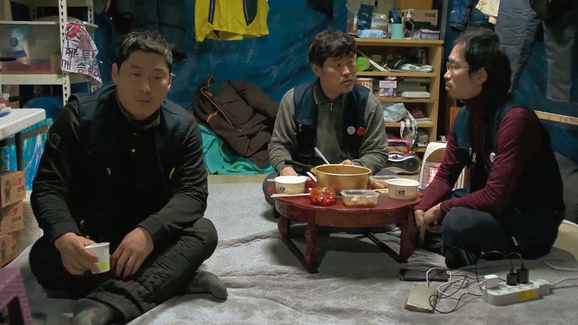
<Holiday> is “a trustworthy film that conveys the sincerity without speaking forcefully” (Park Jeong-won). <Holiday>, director Lee's debut feature film, "opened a new horizon for Korean labor films" (Hong Eun-ae) with a simple look and sincere gaze. “Vacation, directed by Lee Lan-hee, who has observed and lived with workers for a long time, shows a new side that has not been seen in previous labor films through the workers’ eating behavior and their daily lives with their families.” (Lim Soo-yeon) Short film Tent This film, which expands the story that could not be told in , into a feature film, “looks thoughtfully into the lives of laid-off workers who have to live an anxious and regrettable daily life that seems to be broken at any moment, and there is nothing strange about it even if it collapses” (Kim Hyeon-soo). The important thing here is the attitude of looking at the situation of the character. Director Lee Lan-hee said, “I do not regard the laid-off workers who struggle as heroes or sympathize with them. However, when the weight of belief weighs down daily life, it shows the big and small crossroads that a human being enters, and calmly follows the choice of the person standing in front of them. It is the virtue and ethics of <Holiday> that the choice makes the character and the reason for the existence of this film” (Nam Seon-woo). “If the time spent in movies allows someone to experience the greatness and tenacity of living on their own, it would be good to surrender to that truth before discussing advanced aesthetics.” (Kim So-mi)
5th <Winter Night>
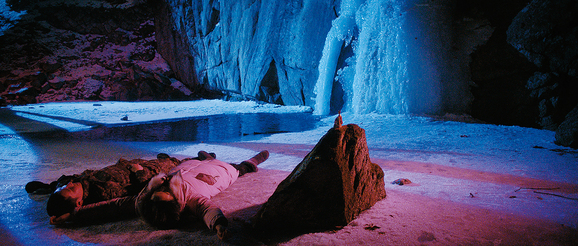
Director Jang Woo-jin is one of “the most interesting writers who deal with time and space in the Korean film industry” (Jang Young-yeop). “It’s released on December 10, 2020, but I don’t think I’ve seen a Korean movie more captivating than this one until 2021,” Nam Seon-woo confessed, revealing the lingering power of <Winter Night>. This film, which is like “a ritual of the night that extracts a sense of place that does not seem to exist anywhere in a real place” (Kim So-hee), “this year in which people and nature, past and present, reality and fantasy face each other bare skin, reflects each other. 's road movie” (Kim So-mi). In particular, the formal beauty of <Winter Night> has a mysterious aspect. “Director Jang Woo-jin destroys the order of time through space and presents a new path for the characters in the play. "토렌트 사이트" On top of that, the director’s coherent world remains clear and is full of intellectual fun that encourages exploration and exploration.” (Huh Nam-woong) “Juxtaposing reality and fantasy to move between what can be visually shown and what cannot be shown” (Nam Sun-woo) The way of directing creates moments like “a sad dream of discovering loss and solitude through overlapping gaps in time and memories.” It is also “a shady midwinter night’s dream drawn by director Jang Woo-jin, who has become a representative of local independent films” (Lee Joo-hyun). In this way, director Jang Woo-jin is "more mature and newly evolving by repeating works" (Lim Soo-yeon).






